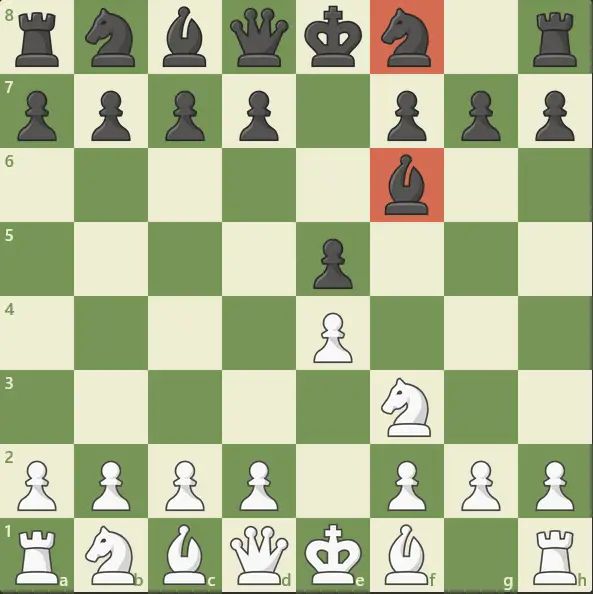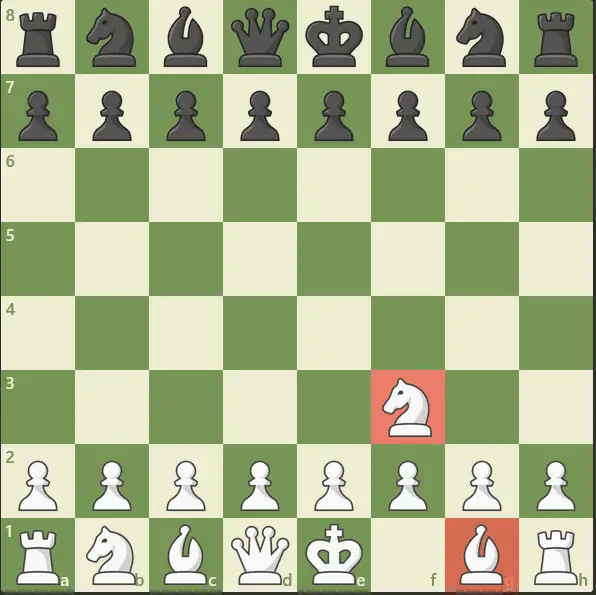Why do chess players touch their pieces before a game?
Players perform initial touches before a game to ensure that every piece is in the right place, to adjust their alignments, as well as to help them relax before a match.
I know you, you are looking for the most important answers to life like why do we exist, how to improve healthcare, or perhaps why do chess players touch their pieces before every game?
Like seriously it’s not supposed to be something like “a rule” yet every participant always seems to do it. Why would that be?
From a bystander’s point of view, this seems like a very unimportant and wasteful effort with no intent.
From researching this however, I’ve found that it actually serves an important role in the game itself. And that’s what I’m going to share and hopefully provide a more clear description for today. Let’s go.
Does not touching the pieces before a game makes you lose?
There aren’t any exact regulations surrounding this idea, it does not affect the game directly in any way.
Failure to touch the pieces before the game does not violate any regulation and therefore doesn’t make you lose.
Although I would say that there are indirect causes that this practice prevents which mitigates such cases (losing). Specifically about how the pieces would be positioned incorrectly which can lead to an unintended loss.
To be exact, players are looking to make this three things right:
- To ensure that the pieces (placements) are accurate.
- To make sure that they are moving the correct piece (which prevents illegal moves).
- To adjust chess pieces that are not appropriately placed in their respective squares.
The proper placement in particular is a really important aspect that this early action hopes to achieve. Having any incorrect placing in any of the squares can mean a loss by default that cannot be overturned.
Just look at this example:

The white Knight on f1 and white bishop at g1 are swapped from their initial positions which makes this an illegitimate placement. Despite this, both players have already made a move including white, signaling that the game has already started.
It is now outside of the rules to touch the pieces in hopes of correcting the position. The arbiter in this case will be tasked to decide the penalty for white, but a loss by default is not unreasonable here (especially if the time format is fast).
So players in general do the touches before the clock starts to avoid such complications. It is just a good safe line to include before starting the game.
Another reason of course is to check whether they are moving the right piece and make the adjustments if necessary. This is a hypothetical situation where this issue applies:

Black in this case has unknowingly shifted the position of the knight and bishop and has treated the black bishop as if it was the Knight. This of course is an illegal move that would be enough to cause a defeat in blitz games for example (although longer time formats just lose you some extra time).
The point is this is a hassle and is something that people in general don’t like to encounter. If white has just double-checked the piece that he or she is moving then this would be corrected immediately.
When does touching pieces (before a game) become important?
With the reasons stated above this seems pretty important, but there is a time where it is more important than other occasions. Specifically with the time control the field is played.
The initial touch of the pieces is important in very fast time controls where illegal moves are immediately considered a defeat, unlike the longer ones.
It doesn’t mean that this practice is not applicable in classical games for example, just not as important. You lose about 2 minutes of your time (could be more) if the control allows some leverage to do so.
I mean just think about it, if you lose at least two minutes in faster time controls then you don’t have much left anyway. And if you’re allowed to play on it’s likely that the opponent themselves have spent time correcting you.
So the regulators just made it so that illegal moves are punished heavily (which is acceptable since it rarely occurs in the first place). Therefore if you’re playing some blitz in over-the-board play, maybe you should be more careful about the position of your pieces (since you don’t want to lose by default).
Here’s a good example of such case that I’ve found from quora:

This was a blitz game, the teller in question claims to have seen white here play Knight to g3 (which is a legal move in normal circumstances). But since the initial position of the pieces is incorrect, it appears to become an illegal move.
The opponent of the white pieces in this game did not let this go easily either, he protested to the arbiter for a default win. He won this case, and he really got a victory before even playing (which is lawful).
I don’t want you to suffer in the grasp of this same mistake, so be more attentive to the position of pieces before you make a move.
What benefit does touching the pieces offer psychologically?
That is the technical aspect of things, but there are actual psychological reasons why participants seem to always do this.
Touching the pieces before the game appears to be like a “game ritual” that helps player gets in the mood to play, as well a signature for them to get into “their game”.
Tournament after all is played in a wide setting where participants play continuously for a long period of time. It’s hard to get focus on such an environment.
This practice makes the participant pay more attention to the game at hand. When they can stimulate their hand by touching the pieces, it subconsciously tells the brain that a game will have to be played.
This helps them concentrate on things that would have to be accomplished even in the early phases of competition (opening). This is a sort of a warm-up that gets the mind going for the rest of the thinking stages
Getting to “the zone” after all is incredibly difficult especially when playing with numerous opponents straight. This wakes up their inner presence to be involved with the game and beyond.
They can be comfortable before the game first before the pressure forces them to do so. They don’t need to be punished or commit a mistake just to get into the mood.
It is a good luck sort of thing, like how Lebron throws powder that signifies him taking the game seriously.
Moreover, pieces that go over their squares are especially annoying, and you can’t change them once the game has started. You would have to leave those for the rest of the game while feeling “off” about that Knight that’s looking to jump from its square.
Does touching pieces before games a standard practice?
Yes, a lot of players incorporate adjusting the pieces before the game especially those playing at a higher level.
When you are playing for a living where every mistake counts participants are not willing to take the chance. Plus, these people have been competing for ages and they’ve likely developed a habit of doing this.
It’s pretty understandable to take the game in a more concentrated light since every event is that much important. I’m not a professional, but I think this is just a habit for the most part.
It just feels awesome, makes you appear professional which they are. It gives that very competitive atmosphere that you know what you are doing.
But maybe that is just my opinion, I’m not exactly on the top of the world to know but I think that is accurate.
Will you adjust the pieces at every start of your game?
This practice in general seems to be a very effortless but impactful standard that every player should do. It’s not like seconds of your time wasted would be that useful, at least you won’t lose by default this way.
So I highly recommend doing this as a habit since it doesn’t really take some investment on your part. Just make sure that the pieces are in the right places before you start the clock.
It can make a world of difference between having the opportunity to win and losing. I hope this is helpful, sleep well and play chess.
